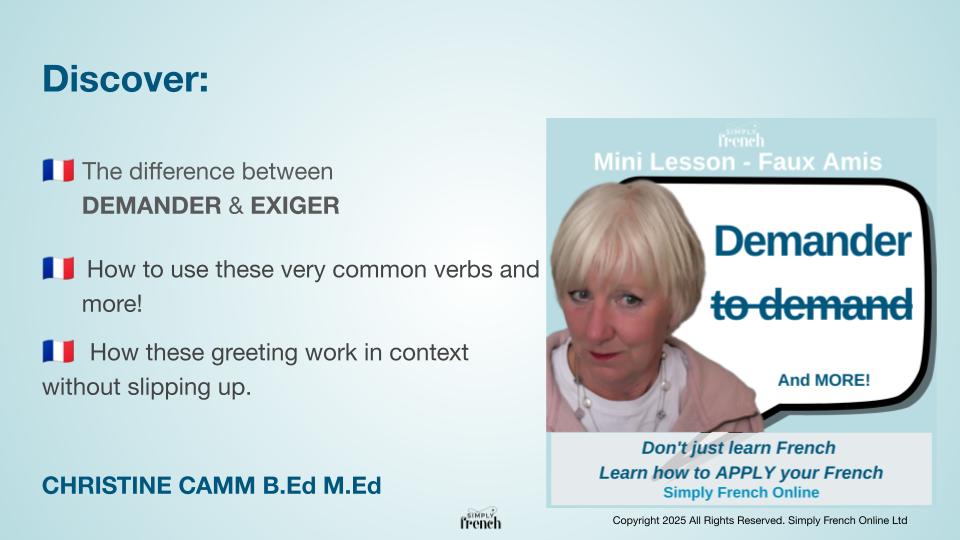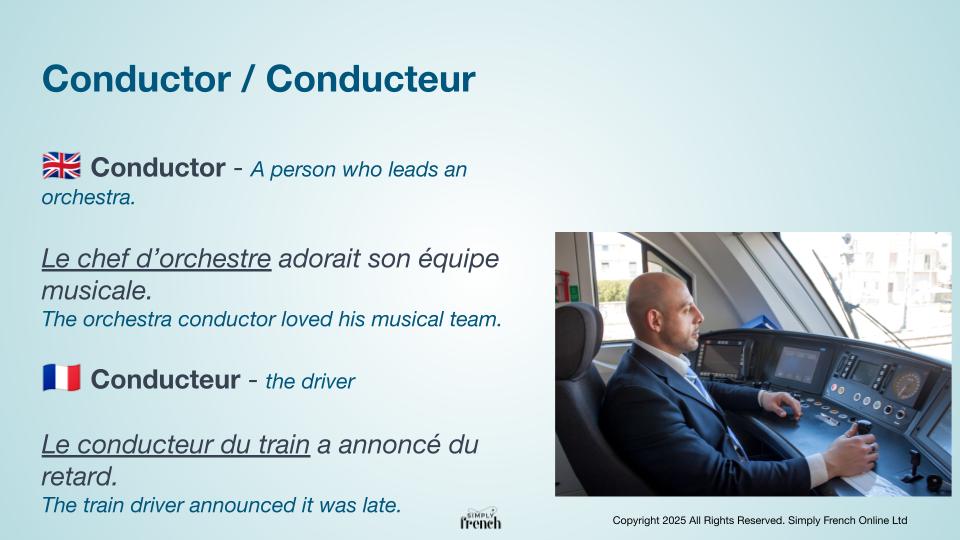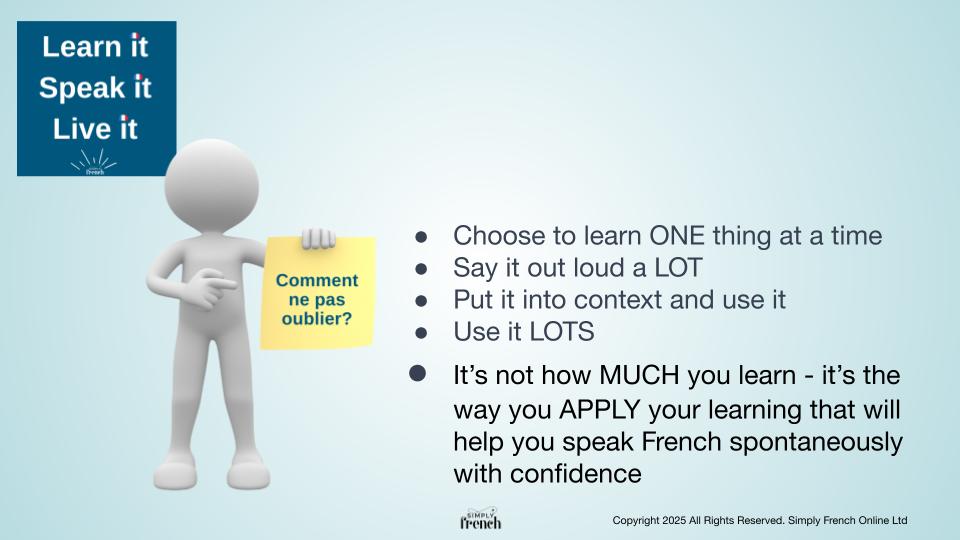What’s the difference between “Demanding” in French and “Asking” in English?
Apr 15, 2025How many times have you avoided using the word DEMANDER in French?
You know, just in case it sounds a bit strong.
I get that. In fact, it’s not as strong as you think as it’s merely the verb “to ask”.
It’s used so much in French, like “Je lui ai demandé de m’accompagner en ville.” (I asked him to come with me to town.)
It’s most certainly NOT demanding, at all.
Today you will discover:
- The difference between DEMANDER & EXIGER
- How to use these very common verbs and more!
- How you can use these words in context without slipping up.

“DEMANDER” and “EXIGER” are completely different verbs.
One verb involves obligation while the other is neutral.
- demander >>> to ask
- exiger >>> to demand.
One way to use them:
- J’ai demandé à ma mère de venir. >>> I asked my mum to come.
- Mais ma mère a exigé que moi, j’aille chez elle. >>> But my mum demanded that I go to her place.

They do look similar they have nothing in common:
- comprend >>> to include
- compréhensif >>> to be understanding.
Some examples:
- Le repas comprend la TVA. >>> The meal includes the VAT.
- Stépahne est un infirmier très compréhensif. >>> Stéphane is a very understanding nurse.

Oui they both handle something but one handles a vehicle and the other an orchestra:
- un chef d’orchestre >>> a conductor
- un conducteur >>> a driver
Let’s them in action:
- Le chef d’orchestre adorait son équipe musicale. >>> The orchestra conductor loved his musical team.
- Le conducteur de train a annoncé du retard. >>> The train drivaer announced it was late.

Again, the spelling matters. In addition, both words are very specific:
- Une correspondance >>> a connection
- Une connection >>> a link
Here is how to use them:
- J’ai raté la correspondance d’avion. >>> I missed my flight connection.
- Je pense que nous avons une bonne connexion entre nous. >>> I think we have a good connection (link) between us.

Tips to learn false friends in French.
To start with, choose one thing at a time and master it. Once you do, you can add more to your list.
Then, say it aloud to memorise it.
The word is not enough. Indeed, if you put it into context with your own example it will facilitate.
Then, you want to practise as much as possible or you will forget it.
In a nutshell, there is no need to learn a lot. You would better apply your learning in order to speak French simultaneously with confidence.

In this mini-lesson, you have covered the following false-friends:
- demander >>> to ask vs exiger >>> to demand.
- comprend >>> to include vs compréhensif >>> to be understanding.
- un chef d’orchestre >>> a conductor vs un conducteur >>> a driver
- Une correspondance >>> a connection vs une connection >>> a link
- Une université >>> a college vs un collège >>> a middle school
Are you interested in learning more about false-friends? You may be interested in this mini-lesson:
What’s the difference between “Brillant” in French and “Brilliant” in English?
What’s the difference between “Introduire” in French and “Introducing” in English?
Do you know other false friends?
Free Masterclass
Learn my 4 step method of how to hold meaningful french conversations the R.E.A.L. way in just 30 minutes a day.
When you signup, we'll be sending you weekly emails with additional free content

